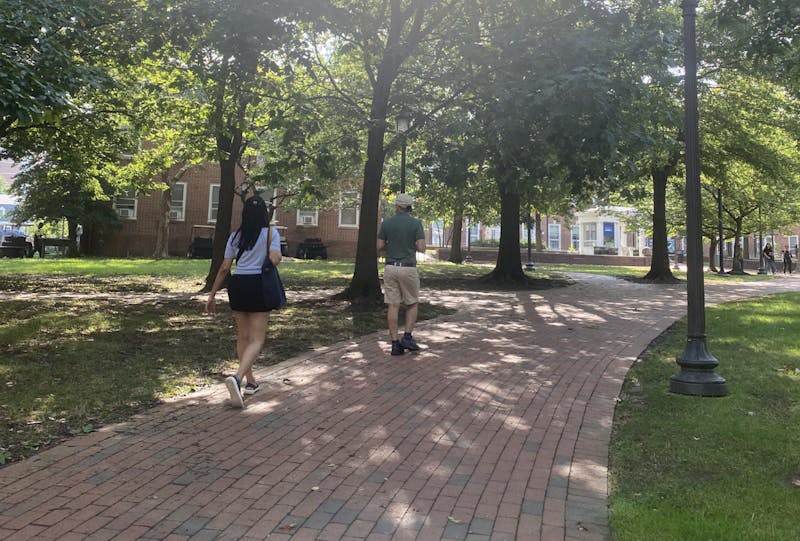Science
Freshman Navigates Homesickness and Time Zones in College Life

As students settle into university life, the emotional challenges of being far from home can weigh heavily, particularly for freshmen. Samika Jain, a first-year student from Mumbai, India, shares her experience grappling with homesickness while studying in Baltimore. Jain reflects on the impact of time zone differences and the longing for family moments during her transition to college.
Experiencing Distance Through Time
The reality of living in a different time zone becomes apparent for Jain during a typical evening in Baltimore, which coincides with morning back home. A simple text from her mother, showcasing a familiar cup of chai, serves as a reminder of home. It is not just about missing family; it is about the moments that are lost in translation across time zones.
During a grainy FaceTime call with her father, who has lit up the Diwali decorations, Jain feels the weight of distance. The sounds of celebration—neighbors chatting, firecrackers popping, and music playing—contrast sharply with her solitary experience in Baltimore. While her family engages in joyful festivities, she finds herself navigating a cold fall evening, highlighting the emotional disconnect that often accompanies such transitions.
“Good morning” messages arrive when it is still dark outside her dorm, and inquiries about her day come before hers has even begun. This unique relationship with time feels intimate yet isolating, as it emphasizes the physical and emotional distance between her and her family.
Building a New Sense of Belonging
Initially, Jain attempted to synchronize her life between Baltimore and Mumbai by staying up late for calls and juggling schedules. However, the reality of her situation soon set in. “You can’t live in both places at once,” she notes, acknowledging the need to adapt to her new environment while allowing time to shape her experiences.
On certain evenings, feelings of guilt arise when she misses calls with her sister, who relies on Jain’s support during exam preparations. These missed connections serve as a reminder of family traditions and the moments that cannot be replicated across the miles. Jain realizes that homesickness is not merely about longing for a place but rather about missing the shared moments and experiences that define those relationships.
As she walks back from classes, surrounded by the laughter of peers and the vibrancy of campus life, Jain is struck by the simultaneous unfolding of life back home. She imagines her parents preparing breakfast while she navigates her academic responsibilities, underscoring the ongoing nature of life on both sides of the globe.
“It teaches you to live with unfinished moments,” she reflects, recognizing that technology can bridge some gaps but cannot replace the warmth of being physically present. There are always celebrations seen only through a screen and messages sent too late, yet this distance also fosters a sense of forgiveness—both for herself and her loved ones.
In her quieter moments, as she watches sunsets that mirror those seen by her family ten hours away, Jain finds solace. “For a brief second, the world feels folded in half,” she expresses, emphasizing that despite the miles, she feels both present and connected to her roots.
Through her experience, Jain highlights the complex nature of adjusting to university life while cherishing the memories of home. Her column serves as a testament to the emotional landscape faced by many students navigating similar challenges, reminding us that distance, while difficult, can also cultivate resilience and understanding.
-

 Science3 weeks ago
Science3 weeks agoInventor Achieves Breakthrough with 2 Billion FPS Laser Video
-

 Health4 weeks ago
Health4 weeks agoCommunity Unites for 7th Annual Into the Light Walk for Mental Health
-

 Top Stories4 weeks ago
Top Stories4 weeks agoCharlie Sheen’s New Romance: ‘Glowing’ with Younger Partner
-

 Entertainment4 weeks ago
Entertainment4 weeks agoDua Lipa Aces GCSE Spanish, Sparks Super Bowl Buzz with Fans
-

 Business4 weeks ago
Business4 weeks agoTyler Technologies Set to Reveal Q3 Earnings on October 22
-

 Entertainment4 weeks ago
Entertainment4 weeks agoMother Fights to Reunite with Children After Kidnapping in New Drama
-

 World4 weeks ago
World4 weeks agoR&B Icon D’Angelo Dies at 51, Leaving Lasting Legacy
-

 Health4 weeks ago
Health4 weeks agoCurium Group, PeptiDream, and PDRadiopharma Launch Key Cancer Trial
-

 Science4 weeks ago
Science4 weeks agoNorth Carolina’s Biotech Boom: Billions Invested in Manufacturing
-

 Health4 weeks ago
Health4 weeks agoNorth Carolina’s Biotech Boom: Billions in New Investments
-

 Entertainment4 weeks ago
Entertainment4 weeks agoRed Sox’s Bregman to Become Free Agent; Tigers Commit to Skubal
-

 Top Stories3 weeks ago
Top Stories3 weeks agoFormer Mozilla CMO Launches AI-Driven Cannabis Cocktail Brand Fast








